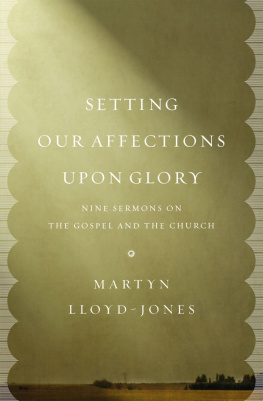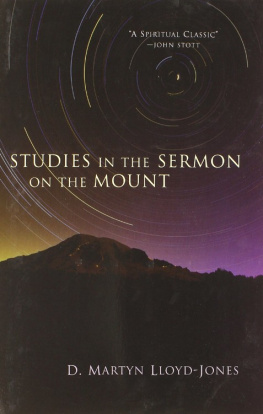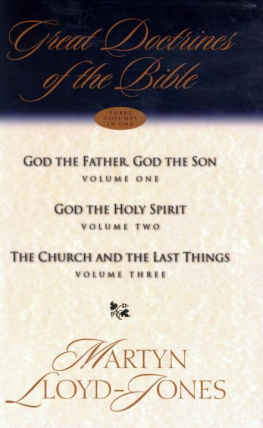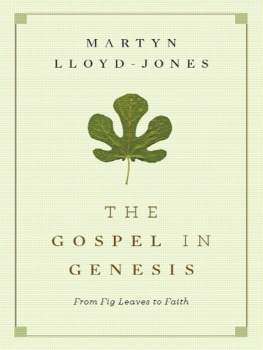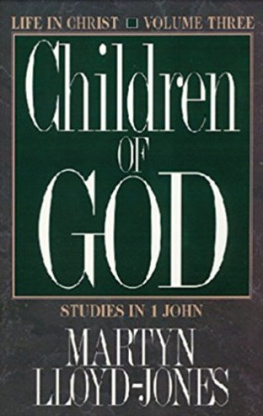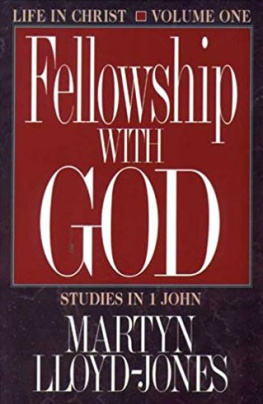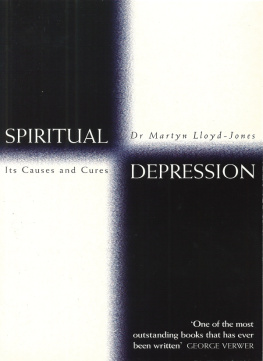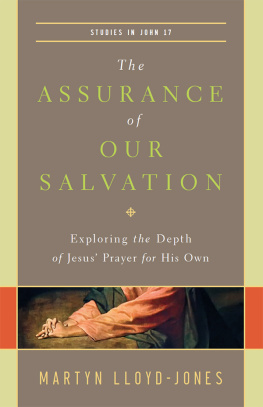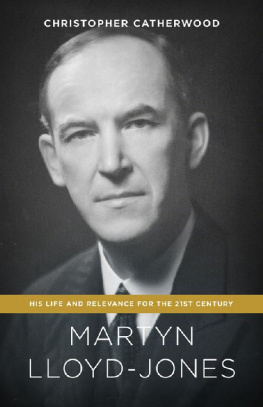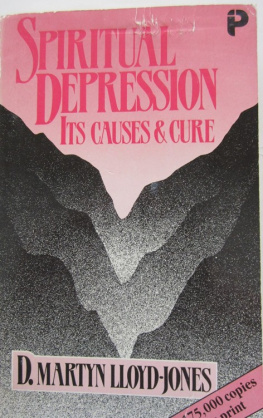Thank you for downloading this Crossway book.
Sign-up for the Crossway Newsletter for updates on special offers, new resources, and exciting global ministry initiatives:
Crossway Newsletter
Or, if you prefer, we would love to connect with you online:
Facebook
Twitter
Google +
A faithful source of biblical clear-headedness and a model for preaching that shapes our palette for the deep things of God and his gospel.
John Starke, Lead Pastor, All Souls Church, New York, New York; editor, The Gospel Coalition
SETTING
OUR AFFECTIONS
UPON GLORY
O THER C ROSSWAY B OOKS BY M ARTYN L LOYD -J ONES
The Cross
The Gospel in Genesis
The Kingdom of God
Let Not Your Heart Be Troubled
Living Water
Out of the Depths
Revival
Seeking the Face of God
True Happiness
Truth Unchanged, Unchanging
Walking with God Day by Day
Why Does God Allow War?
S TUDIES IN J OHN 17
The Assurance of Salvation (four volumes in one)
S TUDIES IN A CTS
Authentic Christianity
Courageous Christianity
Victorious Christianity
Glorious Christianity
Triumphant Christianity
Compelling Christianity
S TUDIES IN 1 J OHN
The Assurance of Salvation (four volumes in one)
Setting Our Affections upon Glory
Copyright 2013 by Elizabeth Catherwood and Ann Beatt
Published by Crossway
1300 Crescent Street
Wheaton, Illinois 60187
Cover design: Studio Gearbox
Cover image: Getty Images
First printing 2013
Printed in the United States of America
Scripture quotations are from the King James Version of the Bible.
All emphases in Scripture quotations have been added by the author.
Trade paperback ISBN: 978-1-4335-3265-8
PDF ISBN: 978-1-4335-3266-5
Mobipocket ISBN: 978-1-4335-3275-7
ePub ISBN: 978-1-4335-3287-0
Library of Congress Cataloging-in-Publication Data
Lloyd-Jones, David Martyn.
Setting our affections upon glory : nine sermons on the Gospel and the church / Martyn Lloyd-Jones.
p. cm.
Includes bibliographical references.
ISBN 978-1-4335-3265-8 (tp)
1. Bible. N.T.Sermons. 2. Sermons, English20th
century. I. Title.
BS2341.55.L56 2013
252'.058dc23 2012003831
Crossway is a publishing ministry of Good News Publishers.
VP 22 21 20 19 18 17 16 15 14 13
15 14 13 12 11 10 9 8 7 6 5 4 3 2 1
CONTENTS

I heard the sermons included in this volume in 1969 while a university student. During Christmas break the young adult minister at my home church encouraged me to attend the Pensacola Theological Institute. At the time I doubted I would be able to go because this institute was usually scheduled for late August, which conflicted with the start of the academic year. This year, however, the institute was earlier than usual.
A young lady from church and I took the bus from Miami to Pensacola and arrived Sunday morning. As we went through the bus station to catch a cab to McIlwain Memorial Presbyterian Church, host of the Pensacola Theological Institute, I looked at the morning paper. A map of the Gulf Coast showed an area under a hurricane warning. In the middle of that area was Pensacola.
The service planned for that Sunday evening, August 17, was moved up to 2:00 p.m. so everyone could be in homes by the time Hurricane Camille struck the city. This was the service when Dr. Martyn Lloyd-Jones preached the sermon The Acid Test. By that time the hurricane had begun to turn west, sparing Pensacola, reaching landfall in Mississippi instead. I had the impression for years that the sermon was not in the Doctors plan but was one he had used during the Blitz and thought appropriate for the occasion.
The Sunday services, as well as the weekday morning lectures by other faculty members, were held at McIlwain. Due to the expected crowds eager to hear Dr. Lloyd-Jones, the weekday evening services were held in the much larger facilities of a Baptist church in downtown Pensacola. On Friday afternoon they had a fish fry on the beach, during which I had the opportunity to thank Dr. Lloyd-Jones for his messages.
Though the Pensacola Theological Institute was open to Christians in general, it seemed that a significant portion of the attendees were ministers. A number of ministers and laymen, who a few years later would form the Presbyterian Church in America, attended this conference each year.
The church had arranged for all messages to be recorded and then made available for purchase. I bought the full set in 1969. Some years ago, when my reel-to-reel tape deck was still functional, I made it a point to digitize Dr. Lloyd-Joness sermons. Recently I made these recordings available to the Martyn Lloyd-Jones Recordings Trust, and now these sermons are being put in print for the first time.
John Schultz
Germantown, Tennessee
1
THE ACID TEST

For our light affliction, which is but for a moment, worketh for us a far more exceeding and eternal weight of glory; while we look not at the things which are seen, but at the things which are not seen: for the things which are seen are temporal; but the things which are not seen are eternal.
2 C ORINTHIANS 4:1718
In the last two verses of the fourth chapter of the second epistle of Paul to the Corinthians, the apostle Paul brings to a kind of grand climax the series of amazing and astonishing things that he has just been saying. This is, undoubtedly, one of the great statements in the Scriptures, one of those nuggets that we find standing out here and there, especially in the writings of the great apostle Paul. There are variations even in the writings of the holy men of God who were guided and controlled as they wrote the Scriptures, and this is undoubtedly one of the most eloquent and moving passages.
I say that in order that I may issue a warning. I always feel, when we read a passage like 2 Corinthians 4, that there is a very real danger that we should be so affected and moved and carried away by the eloquence, the diction, the style, the balance that we pay no attention to the message. This is true, I think, of many psalms. There are people who read the psalms not to get their message but because of the beauty of the language and the diction. Some people, it seems, even use them as a kind of soporific. Carried away by the lilt and the cadence and the beauty of the language, they pay no attention at all to the meaning. So I feel, always, when we handle such a passage that we have to take ourselves in hand, discipline ourselves, and make certain that we do lay hold of the message.
We must remember that this great apostle was not a literary man. We must not think of him as a man in a study surrounded by his books, sitting down to produce a great masterpiece of literature or eloquence. That is not the case at all. This man was a preacher, an evangelist, a pastor, a teacher, a founder of churches. So when he produces a great passage like this, it is something almost accidental. What happened was that he was so moved and so carried away that he found himself writing like this almost unconsciously. We must bear that in mind lest we miss the message and be affected by the sound of the language and the beauty of the passage merely from the standpoint of literature.

